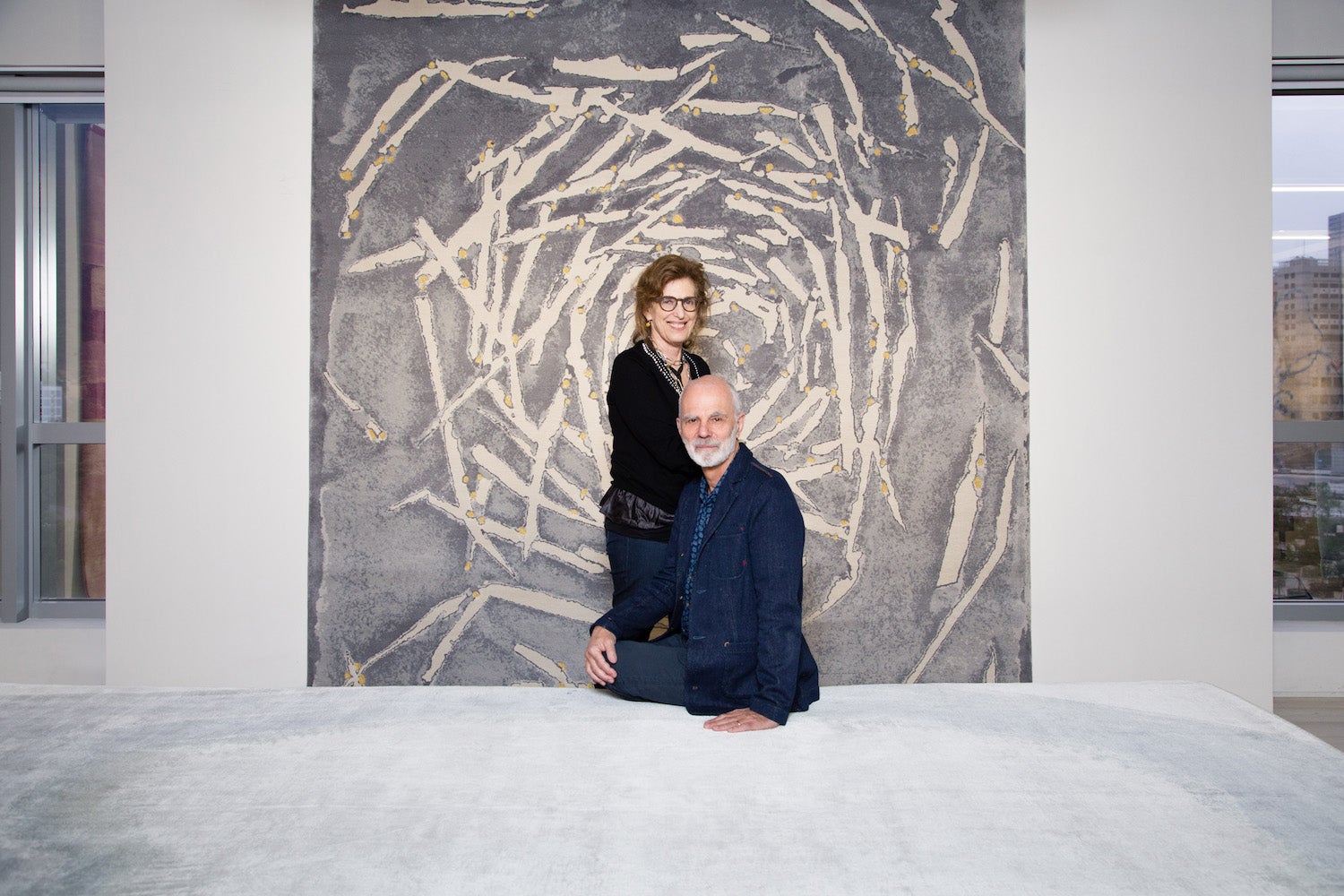Brad Davis and Janis Provisor were successful artists, showing their work in museums and galleries around the world. Then, in the early 1990s, a recession hit, and the art market slowed down a little. The married couple decided to take a sabbatical to China—why not?—and soon found themselves experimenting with silk weaving. They were wondering if they could create a watercolor-like effect in a hand-knotted rug, a technique that, at the time, wasn’t widespread.
“We came up with a lot of different ideas and pasted them all over the wall and Mrs. Lu [the retired manager of a carpet factory who had agreed to help] came one evening after work and she looked at them and collapsed on the bed and put her hands on her head and said, “Meiyou, meiyou, meiyou”—it can’t be done,” recounts Davis. “And we said welllllll … we think it can,” adds Provisor.
In an expansive conversation with host Dennis Scully on this week’s episode of the Business of Home podcast (sponsored by Chairish and Google), Davis and Provisor tell the story of how they built their company, Fort Street Studio, starting with those sketches pasted up on the walls of their bedroom. Their journey is full of creativity, serendipity and lessons learned by two artists who found themselves entrepreneurs. “I think we looked down on businesspeople, we thought somehow we were more elevated—when we got into this thing, we realized business is really creative,” says Davis.
Listen to the episode and sample a few takeaways below. If you like what you hear, subscribe to the podcast free of charge here, and every week a new episode will be delivered to your smartphone.
Embrace Serendipity
Early on in the process of creating their first collection, Davis had to travel to Hong Kong to use a photocopier (at the time, the technology was restricted in mainland China). At a university library, someone happened to show him an early version of the photo-editing software Adobe Photoshop. “He zoomed in and I realized: A pixel is a knot, and that was the lightbulb moment,” recounts Davis. “If I could transform these watercolors into a pixelized design, we could make a pattern.” Serendipitous moments like that played a role at every stage of Fort Street’s development: Just as Davis and Provisor started looking for raw silk, the Chinese army had stopped using the material to make parachutes, leading to a glut of stock. “A lot of things had to go right,” says Provisor.
Forge your own path
Early on, Davis and Provisor tried selling their collection through Stark, and it didn’t work. “[We thought] if we were doing this, we wanted to build a brand, and if you’re subsumed into Stark or any other company, then you disappear,” says Provisor. They ultimately ended up developing their own showrooms and building their own brand—a challenge and a risk, but one that ended up paying off over time. “We thought we had something very special; we saw it mixed in with a lot of other things and it didn’t sing,” adds Davis. “The only way we could really build this was to style it ourselves.”
Look ahead
Fort Street Studio's production process in China has long been based around a team of weavers working out of a factory the company owns. Next year they’ll be moving out, but it’s not only because of tariffs (though those don’t help). Rather, the weavers’ children all went to college and have no interest in picking up a traditional craft, and the original generation is getting to retirement age. It was a change Davis and Provisor saw coming—now they’ll be producing primarily out of India and Thailand. It’s a big change, but one they’re looking forward to, as a chance to try new techniques. “We’re not giving up [our] style of construction and weaving, we’re just moving it to India,” says Davis. “And doing other things there too!” adds Provisor.





























